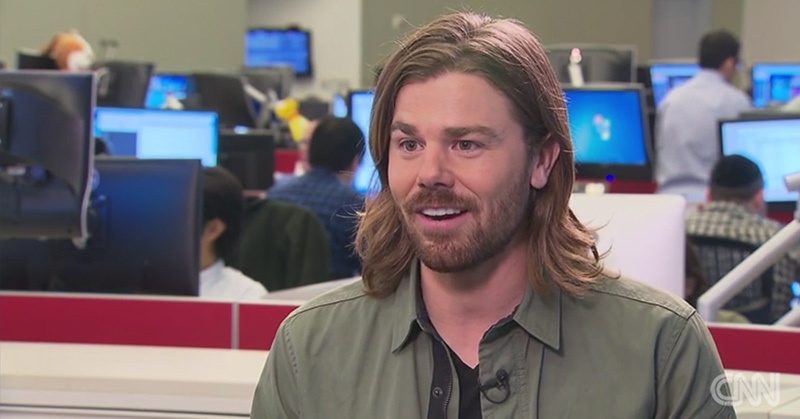In 2010, a Princeton study was published which detailed how one’s salary can affect emotional health and contentment with one’s life. So, does money buy happiness? According to researchers Daniel Kahneman and Angus Deaton, it comes pretty close.
The duo mapped out steady increases in day-to-day emotional wellbeing as well as life satisfaction with every dollar increase in salary – up to about $75,000. After that, money didn’t seem to make much more of a positive impact. (1)
“Low income exacerbates the emotional pain associated with such misfortunes as divorce, ill health, and being alone. We conclude that high income buys life satisfaction but not happiness and that low income is associated both with low life evaluation and low emotional well-being,” the study concludes. (1)
When Dan Price, CEO of Gravity Payments, read this study, he really took it to heart.
He recalled his first employee, whom he could only afford to give a modest salary of $24,000 a year, with no health benefits. “Ever since then I’ve always tried to work on getting better pay, getting better wages. It’s always been on mind, but there was the question of could the company afford it?” Price says. (2)
In the years following a recession, Price managed his company carefully and was proud to keep it profitable during tough times. But after the economy evened out, he was confronted with the fact that his employees were struggling.
An entry-level employee who was earning $35,000 at the time pulled Price aside and told him, “You’re ripping me off. You brag about how financially disciplined you are, but that just translates into me not making enough money to lead a decent life.” (2)
It was then Price knew that he had to put what he learned from the Princeton study into practice.
2015 was the year that it finally seemed possible. Price announced to his 120 Seattle based employees his plan to establish a minimum salary of $70,000 for the entire team. And he would slash his own salary from $1.1M to $70K to do it. (3)
His employees’ lives were deeply affected for the better. Some were able to eliminate debts, others could afford to start a family, others were able to buy their first homes, or see their parents for the first time in a long time.
Price calls the $70k initiative “the best money I’ve ever spent in my life”, but he also believes the decision was good for business in the long run. “I think in the future, a key competitive element in business will be ‘what do you believe?’, ‘how much integrity do you have?’, ‘do you follow through?'” he says. (2)
Since then, Gravity Payments and Price faced media backlash. Price was dismissed as a socialist or just naive. But business continued to thrive, and Gravity has since opened a new branch.
On September 24th, 2019 the Idaho branch announced that they were financially stable enough to include its employees in the $70K project.
“We’re … excited to announce that all of our Boise employees making less than $70,000 a year will be put on a plan to increase their salaries to $70K by 2024,” Gravity Payments’ website states. (4)
In addition to providing employees with a fair enough salary to promote life satisfaction and emotional wellbeing, Gravity Payments has developed a culture of balancing work with life outside of work. It’s an approach that’s earned it the Best Workplace Award multiple times. The company offers (5):
- Open paid time off
- Medical, dental, and vision insurance
- Flannel Fridays
- Company-sponsored outings
- Volunteer opportunities
- Catered breakfasts and lunches
Business is Booming
When word got out about the 70k Initiative, there were those who predicted that the pan would fail. Rush Limbaugh, a political commentator, said that he hoped the company would end up being a case study in MBA programs on how socialism doesn’t work.
“Since then our company tripled and we’re a successful case study at Harvard Business School,” said Price [6]
Price took to Twitter to document the positive changes that have taken place in his company and the lives of his employees. Since 2015, the number of employees who are home owners has increased ten times, seventy percent of his employees have been able to pay off their debts, the number of employees with kids increased ten times, and staff are 76 percent “engaged at work”, which is twice the national average.
“When money is not at the forefront of your mind when you’re doing your job, it allows you to be more passionate about what motivates you,” said employee Rosita Barlow. “You’re not thinking I have to go to work because I have to make money. Now it’s become focused on ‘How do I do good work?'” [6]
What do you think? Would $70,000 make a big difference for you?
- https://www.princeton.edu/~deaton/downloads/deaton_kahneman_high_income_improves_evaluation_August2010.pdf
- https://edition.cnn.com/2019/09/25/business/gravity-increases-employee-minimum-salary-to-70k-trnd/index.html?
- https://www.inc.com/magazine/201511/paul-keegan/does-more-pay-mean-more-growth.html
- https://gravitypayments.com/blog/new-digs-new-era-for-gravitys-boise-team/
- https://gravitypayments.com/about/
- https://www.ladbible.com/news/interesting-ceo-who-took-pay-cut-to-raise-staff-salaries-says-business-has-trebled-20200903?source=facebook&fbclid=IwAR2ZEzas4AE_fXjDVj2mXNDlllVP5z8p8uw1Tt_IqVHWZPrXlHWRuWDZU5Q

